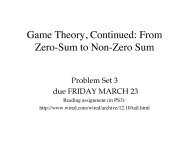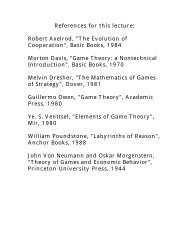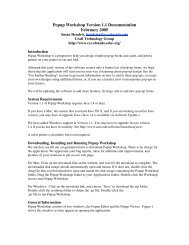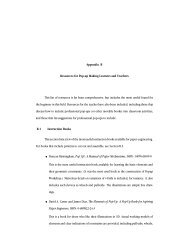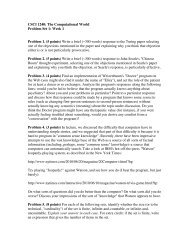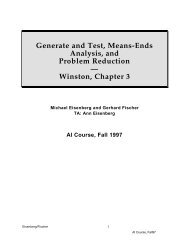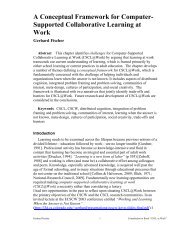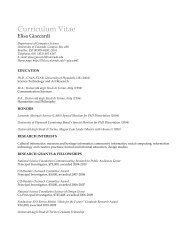Do we have access to our own mental processes? High-‐level v. low ...
Do we have access to our own mental processes? High-‐level v. low ...
Do we have access to our own mental processes? High-‐level v. low ...
You also want an ePaper? Increase the reach of your titles
YUMPU automatically turns print PDFs into web optimized ePapers that Google loves.
Subjects are asked <strong>to</strong> tie the two ropes <strong>to</strong>gether.<br />
When they get stumped, the experimenter swings<br />
one of the ropes, which has a significant effect –<br />
giving the subjects the idea <strong>to</strong> tie a <strong>we</strong>ight <strong>to</strong> one<br />
of the ropes and swing it.<br />
Sometimes a bad cue is included (experimenter<br />
ties a <strong>we</strong>ight <strong>to</strong> a rope and twirls it).<br />
When both cues are included and subjects are<br />
asked which one did the trick, they choose the<br />
wrong one, but the one that might be implied by<br />
an everyday “theory” of how minds work.



